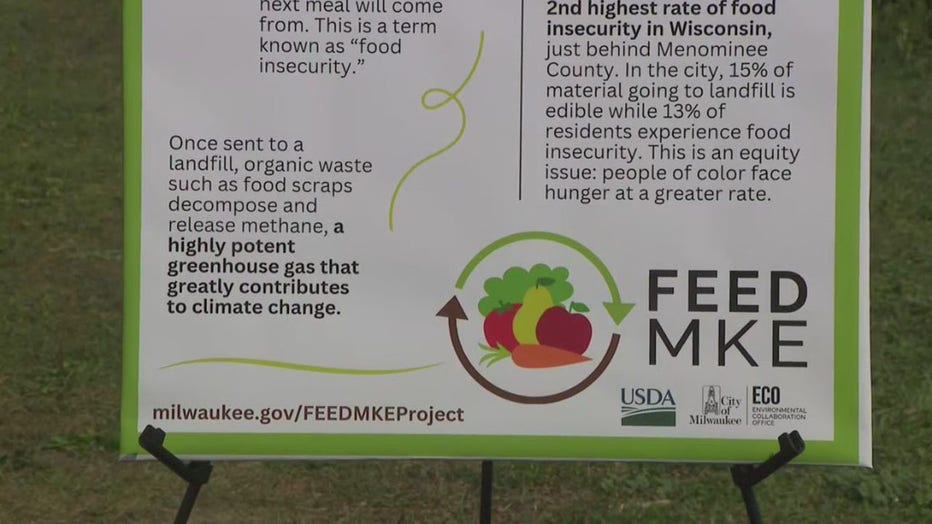Food insecurity, food waste reduction; FEED MKE launches
Food insecurity, food waste reduction; FEED MKE launches
City of Milwaukee officials on Tuesday rolled out a new effort to address food insecurity and food waste reduction.
MILWAUKEE - City of Milwaukee officials on Tuesday, Sept. 10 announced the launch of FEED MKE, a new effort to address food insecurity and food waste reduction.
"The pilot project will address the inner-connected issues of food insecurity, waste reduction, landfill diversion and climate change," said Environmental Sustainability Director Erick Shambarger.
According to a press release, the United States Department of Agriculture provided $400,000 in funding through its Composting and Food Waste program to Milwaukee’s Environmental Collaboration Office. This will advance key elements of the city’s Climate and Equity Plan.
"The FEED MKE Pilot Project offers our city the opportunity to strengthen our economy by reducing waste, addressing hunger, and building programs that inspire hope," Milwaukee Mayor Cavalier Johnson said.
A press release says the Environmental Collaboration Office will manage the two-year grant, administering the Food Excess, Equitable Distribution (FEED) MKE Pilot Project to reduce food waste at the beginning, middle, and end of the food preparation and consumption cycle; collect, glean, and prepare edible food material for redistributed consumption to hungry people; and increase participation in composting on an individual, neighborhood, and city-wide basis, according to a press release.

"Not only does food waste impact the health of our residents, it negatively impacts our environment. You see, once food is sent to a landfill, it can decompose and become methane, which is a powerful greenhouse gas that can affect our planet. Over production of food, packaging and disposable goods results in the loss of natural resources, like energy and water. Not to mention all the single-use plastics that we use to package and transport food become litter in our streets," said Shambarger.
SIGN UP TODAY: Get daily headlines, breaking news emails from FOX6 News
The City of Milwaukee Environmental Collaboration Office (ECO) will offer a total of $127,500 in mini-grants to the community to strengthen food waste recovery and composting.
Grant awards of $5,000- $30,000 are available to 4-8 organizations to support food recovery capacity-building through partnerships with local food-based businesses, food banks, and community-based organizations. Grant awards of $5,000-$20,000 are available to 3-5 organizations for on-site composting supplies or to institute subscription-based composting services at community locations.
"In Wisconsin, 1.2 billion pounds of food goes to waste annually, while 1 in 7 households don't have enough food to eat and don't know where their next meal is coming from," Shambarger. "This is called food insecurity, and it's a real problem. Milwaukee County has the second-highest rate of food insecurity in Wisconsin, just behind Menominee County. In the city, 15 percent of the material going into the landfill is edible food, while 13 percent of residents experience food insecurity."
Applications are open Sept. 10 through Nov. 22 at milwaukee.gov/FEEDMKEProject.

